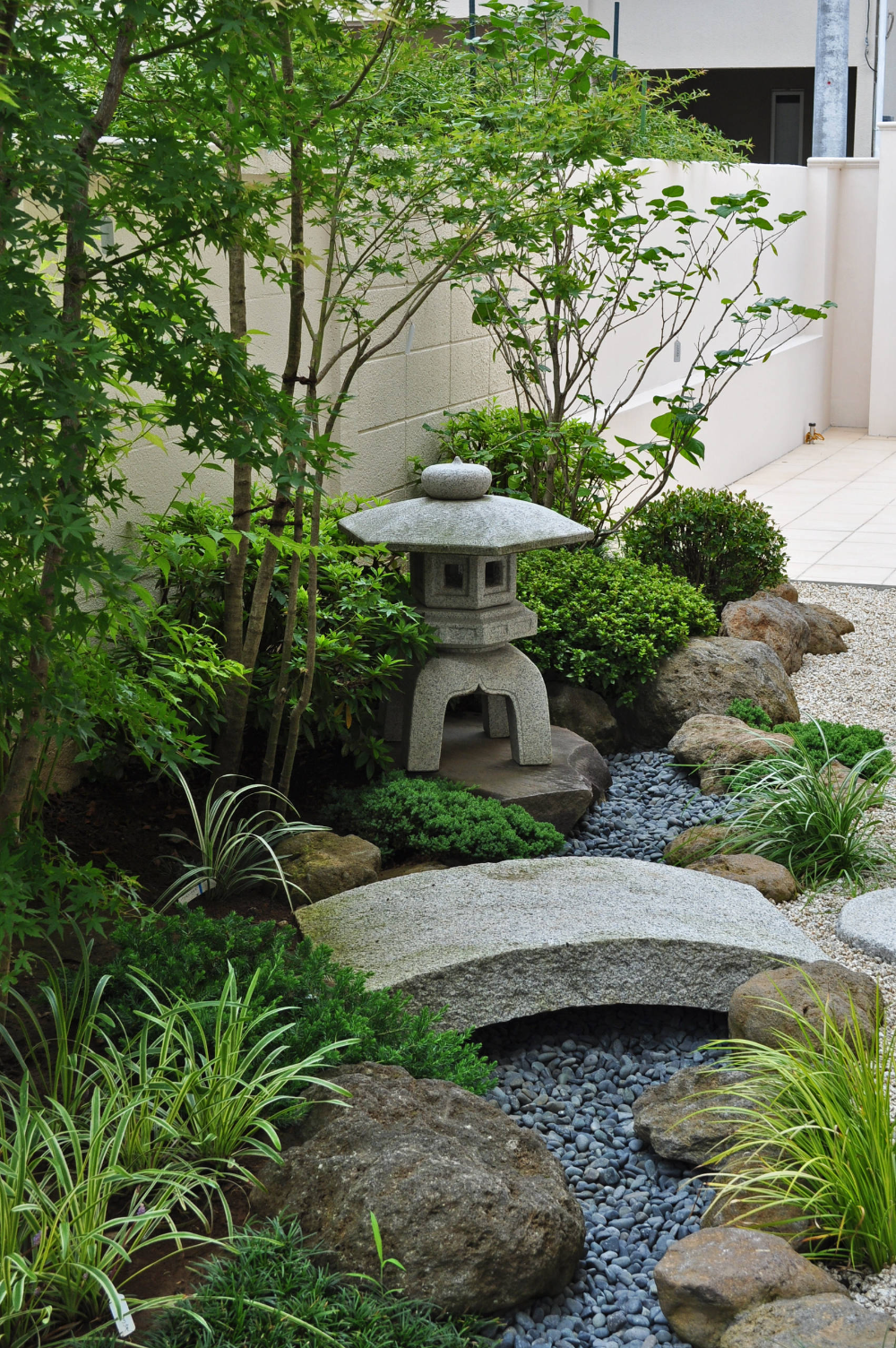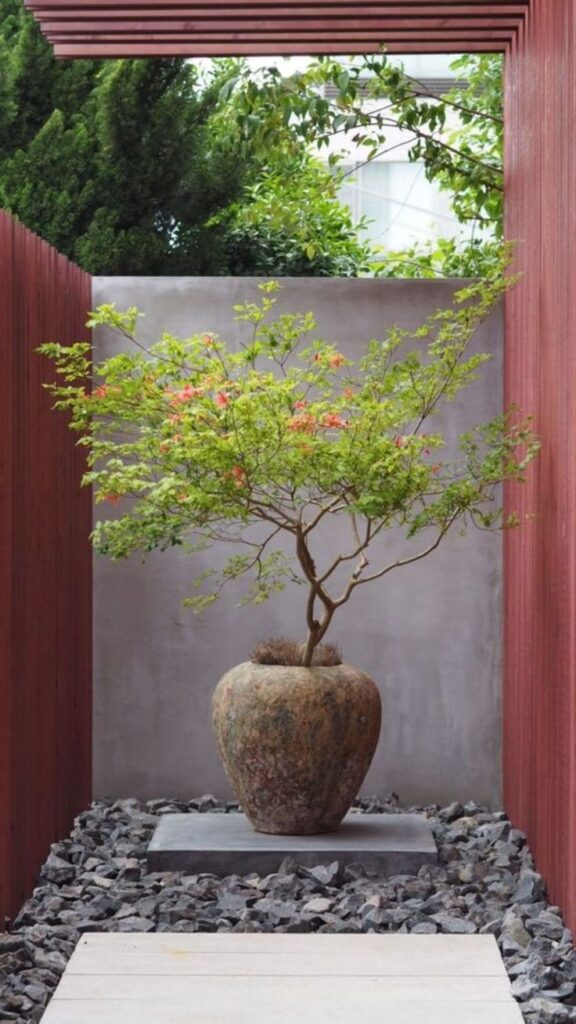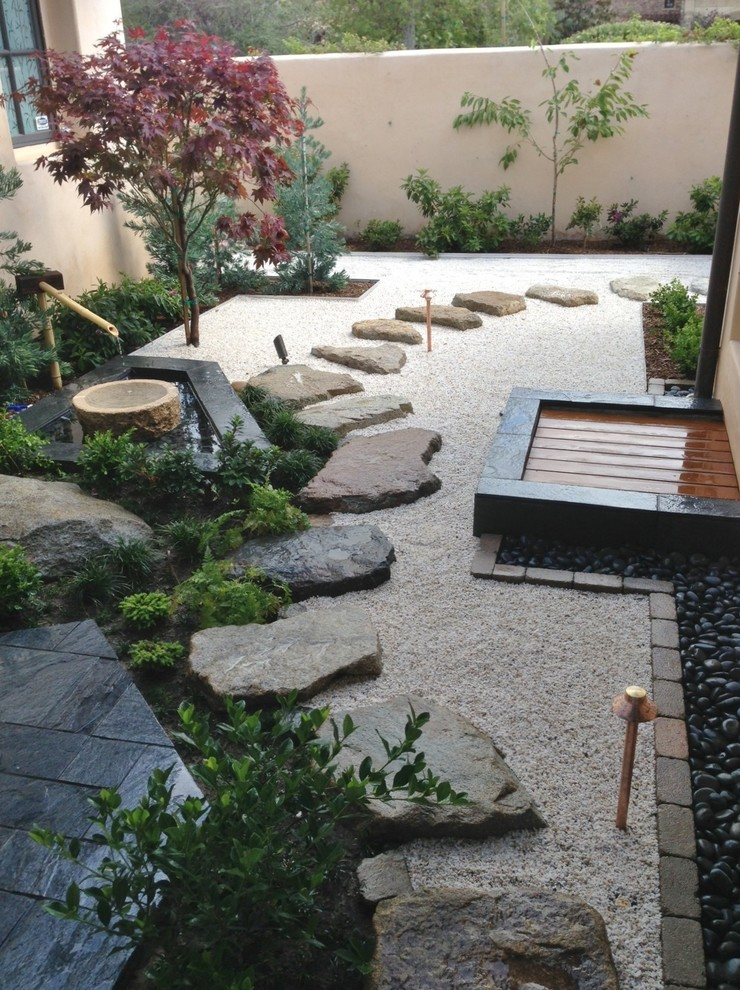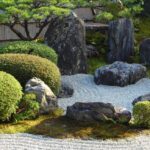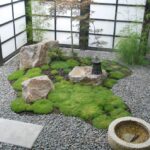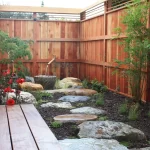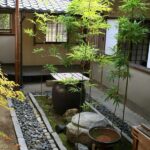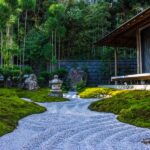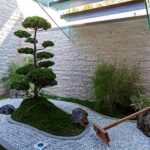Small Japanese Zen gardens, also known as “Karesansui,” are a popular form of traditional Japanese garden that is designed to be a place of tranquility and peace. These gardens typically feature a harmonious balance of elements such as sand, rocks, gravel, and moss, all carefully arranged to create a calming and meditative atmosphere.
One of the key features of a small Japanese Zen garden is the use of raked sand or gravel to mimic the effect of water. This feature is meant to symbolize the flow of water and the passage of time, and is considered an essential element in promoting relaxation and contemplation. The patterns created in the sand by raking are often intricate and beautiful, inviting viewers to pause and reflect on the beauty of nature.
Rocks are another important element in small Japanese Zen gardens, as they are believed to symbolize mountains, islands, or other natural landscapes. The careful placement of rocks within the garden is thought to represent the harmonious balance of elements in the universe and to create a sense of stability and grounding. Moss is often used to soften the appearance of rocks and add a touch of greenery to the garden, further enhancing the sense of tranquility and peace.
In addition to these traditional elements, small Japanese Zen gardens may also include small, carefully maintained plants such as bonsai trees or bamboo. These plants are chosen for their aesthetic beauty and ability to enhance the overall atmosphere of the garden. The combination of plants, rocks, and raked sand creates a visually stunning and harmonious composition that invites viewers to slow down and appreciate the beauty of nature.
Small Japanese Zen gardens are not just for contemplation and relaxation; they are also an important part of Japanese culture and history. Dating back to the 14th century, these gardens were originally created by Buddhist monks as a way to connect with nature and promote meditation. Today, they continue to be a popular feature in Japanese homes, temples, and public spaces, serving as a reminder of the importance of mindfulness and inner peace in everyday life.
Overall, small Japanese Zen gardens are a beautiful and meaningful expression of Japanese culture and philosophy. Through careful design and arrangement of natural elements, these gardens offer a space for contemplation, meditation, and connection with the natural world. Whether placed in a home or a public setting, a small Japanese Zen garden can provide a peaceful retreat from the hustle and bustle of daily life, inviting viewers to slow down, relax, and appreciate the beauty of the world around them.
